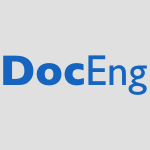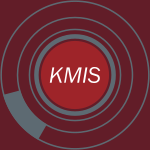27 papers:
 DocEng-2015-ChoudhuryMG #automation #documentation
DocEng-2015-ChoudhuryMG #automation #documentation- Automatic Extraction of Figures from Scholarly Documents (SRC, PM, CLG), pp. 47–50.
 DocEng-2015-IorioGPPV
DocEng-2015-IorioGPPV- Exploring Scholarly Papers Through Citations (ADI, RG, FP, SP, FV), pp. 107–116.
 DocEng-2015-Leijen #documentation #named #web
DocEng-2015-Leijen #documentation #named #web- Madoko: Scholarly Documents for the Web (DL), pp. 129–132.
 CSCW-2015-SenGGHLNRWH #algorithm #community #standard
CSCW-2015-SenGGHLNRWH #algorithm #community #standard- Turkers, Scholars, “Arafat” and “Peace”: Cultural Communities and Algorithmic Gold Standards (SS, MEG, RG, BH, ML, SN, JR, Z(W, BH), pp. 826–838.
 DocEng-2014-Lynch #evolution
DocEng-2014-Lynch #evolution- The evolving scholarly record: new uses and new forms (CAL), pp. 1–2.
 ECIR-2014-CarageaWCWRCWG #big data #dataset
ECIR-2014-CarageaWCWRCWG #big data #dataset- CiteSeer x : A Scholarly Big Dataset (CC, JW, AMC, KW, JPFR, HHC, ZW, CLG), pp. 311–322.
 ICDAR-2013-TuarobBMG #automation #detection #documentation #machine learning #pseudo #using
ICDAR-2013-TuarobBMG #automation #detection #documentation #machine learning #pseudo #using- Automatic Detection of Pseudocodes in Scholarly Documents Using Machine Learning (ST, SB, PM, CLG), pp. 738–742.
 DUXU-WM-2013-Zhang #evaluation
DUXU-WM-2013-Zhang #evaluation- User-Centered Evaluation of a Discovery Layer System with Google Scholar (TZ), pp. 313–322.
 OCSC-2013-MirandaICP #education #student #web
OCSC-2013-MirandaICP #education #student #web- WEB 2.0 Technologies Supporting Students and Scholars in Higher Education (PM, PTI, CJC, SP), pp. 191–200.
 CIKM-2013-Giles #big data #data mining #information management #mining
CIKM-2013-Giles #big data #data mining #information management #mining- Scholarly big data: information extraction and data mining (CLG), pp. 1–2.
 ITiCSE-2011-ChuaB #framework
ITiCSE-2011-ChuaB #framework- Integrating scholarly articles within e-learning courses: a framework (BBC, DVB), p. 392.
 CIKM-2011-PeraN #personalisation #recommendation
CIKM-2011-PeraN #personalisation #recommendation- A personalized recommendation system on scholarly publications (MSP, YKN), pp. 2133–2136.
 HT-2010-BeelG #on the #robust
HT-2010-BeelG #on the #robust- On the robustness of google scholar against spam (JB, BG), pp. 297–298.
 ICML-2010-GerrishB #approach
ICML-2010-GerrishB #approach- A Language-based Approach to Measuring Scholarly Impact (SG, DMB), pp. 375–382.
 SIGIR-2010-LanaganS #named
SIGIR-2010-LanaganS #named- SIGIR: scholar vs. scholars’ interpretation (JL, AFS), pp. 713–714.
 HT-2009-AlfordM #process #research
HT-2009-AlfordM #process #research- Scholarly research process: investigating the effects of link type and directionality (MLA, EM), pp. 99–108.
 KMIS-2009-MingersL #comparison #impact analysis #web
KMIS-2009-MingersL #comparison #impact analysis #web- Measuring the Impact of Knowledge — A Comparison of Web of Science and Google Scholar (JM, LL), pp. 112–116.
 HT-2004-LeggettS #communication #design #hypermedia #interactive #research
HT-2004-LeggettS #communication #design #hypermedia #interactive #research- Directions for hypertext research: exploring the design space for interactive scholarly communication (JJL, FMSI), pp. 2–11.
 HT-2002-BrodyCH #hypermedia
HT-2002-BrodyCH #hypermedia- Evidence of Hypertext in the scholarly archive (TB, LC, SH), pp. 74–75.
 HT-2002-FurutaU #on the
HT-2002-FurutaU #on the- On the characteristics of scholarly annotations (RF, EU), pp. 78–79.
 HT-2001-Dalgaard #hypermedia
HT-2001-Dalgaard #hypermedia- Hypertext and the scholarly archive: intertexts, paratexts and metatexts at work (RD), pp. 175–184.
 HT-2001-ManciniS #hypermedia
HT-2001-ManciniS #hypermedia- Cognitive coherence relations and hypertext: from cinematic patterns to scholarly discourse (CM, SBS), pp. 165–174.
 SIGIR-2001-Broch
SIGIR-2001-Broch- Cite Me, Cite My References? (Scholarly Use of the ACM SIGIR Proceedings Based on Two Citation Indexes) (EB), pp. 446–447.
 HT-2000-Blustein #automation #evaluation #hypermedia
HT-2000-Blustein #automation #evaluation #hypermedia- Automatically generated hypertext versions of scholarly articles and their evaluation (JB), pp. 201–210.
 SAC-2000-WiilH #development #hypermedia #library #requirements
SAC-2000-WiilH #development #hypermedia #library #requirements- Requirements for Development of Hypermedia Technology for a Digital Library Supporting Scholarly Work (UKW, DLH), pp. 607–609.
 CHI-1998-SumnerS #concept #documentation
CHI-1998-SumnerS #concept #documentation- From Documents to Discourse: Shifting Conceptions of Scholarly Publishing (TS, SBS), pp. 95–102.
 HT-1997-Kolb #complexity #hypermedia #self
HT-1997-Kolb #complexity #hypermedia #self- Scholarly Hypertext: Self-Represented Complexity (DK), pp. 29–37.
 DocEng-2015-ChoudhuryMG #automation #documentation
DocEng-2015-ChoudhuryMG #automation #documentation DocEng-2015-IorioGPPV
DocEng-2015-IorioGPPV DocEng-2015-Leijen #documentation #named #web
DocEng-2015-Leijen #documentation #named #web CSCW-2015-SenGGHLNRWH #algorithm #community #standard
CSCW-2015-SenGGHLNRWH #algorithm #community #standard DocEng-2014-Lynch #evolution
DocEng-2014-Lynch #evolution ECIR-2014-CarageaWCWRCWG #big data #dataset
ECIR-2014-CarageaWCWRCWG #big data #dataset ICDAR-2013-TuarobBMG #automation #detection #documentation #machine learning #pseudo #using
ICDAR-2013-TuarobBMG #automation #detection #documentation #machine learning #pseudo #using DUXU-WM-2013-Zhang #evaluation
DUXU-WM-2013-Zhang #evaluation OCSC-2013-MirandaICP #education #student #web
OCSC-2013-MirandaICP #education #student #web CIKM-2013-Giles #big data #data mining #information management #mining
CIKM-2013-Giles #big data #data mining #information management #mining ITiCSE-2011-ChuaB #framework
ITiCSE-2011-ChuaB #framework CIKM-2011-PeraN #personalisation #recommendation
CIKM-2011-PeraN #personalisation #recommendation HT-2010-BeelG #on the #robust
HT-2010-BeelG #on the #robust ICML-2010-GerrishB #approach
ICML-2010-GerrishB #approach SIGIR-2010-LanaganS #named
SIGIR-2010-LanaganS #named HT-2009-AlfordM #process #research
HT-2009-AlfordM #process #research KMIS-2009-MingersL #comparison #impact analysis #web
KMIS-2009-MingersL #comparison #impact analysis #web HT-2004-LeggettS #communication #design #hypermedia #interactive #research
HT-2004-LeggettS #communication #design #hypermedia #interactive #research HT-2002-BrodyCH #hypermedia
HT-2002-BrodyCH #hypermedia HT-2002-FurutaU #on the
HT-2002-FurutaU #on the HT-2001-Dalgaard #hypermedia
HT-2001-Dalgaard #hypermedia HT-2001-ManciniS #hypermedia
HT-2001-ManciniS #hypermedia SIGIR-2001-Broch
SIGIR-2001-Broch HT-2000-Blustein #automation #evaluation #hypermedia
HT-2000-Blustein #automation #evaluation #hypermedia SAC-2000-WiilH #development #hypermedia #library #requirements
SAC-2000-WiilH #development #hypermedia #library #requirements CHI-1998-SumnerS #concept #documentation
CHI-1998-SumnerS #concept #documentation HT-1997-Kolb #complexity #hypermedia #self
HT-1997-Kolb #complexity #hypermedia #self









